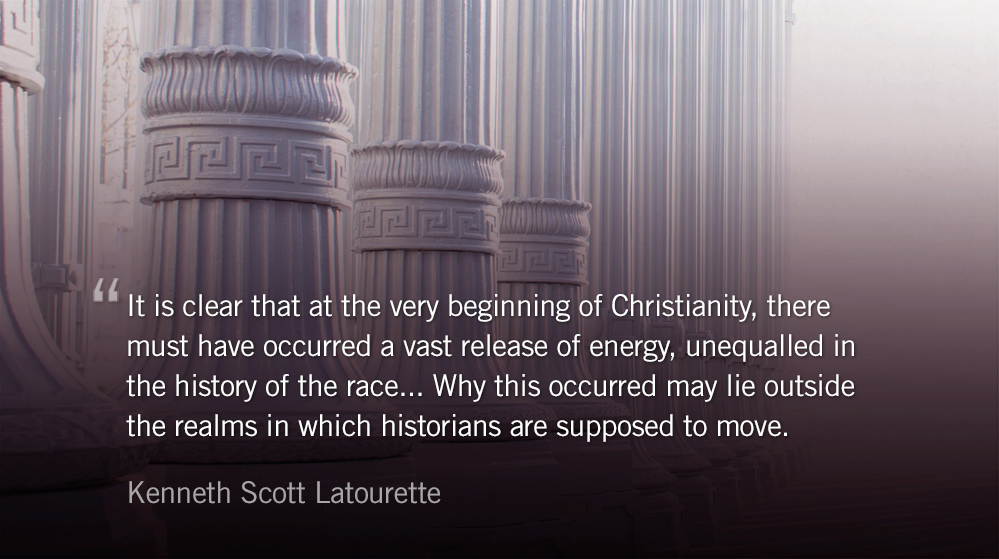“Keep away from these men and let them alone, for if this plan or this undertaking is of man, it will fail; but if it is of God, you will not be able to overthrow them.” — Gamaliel (Acts 5.38-39)
Christianity’s first followers faced enormous opposition, dozens of competing religions and philosophies in Rome, and lacked the backing of cultural influencers. In a sermon on discipleship Timothy Keller asks how Christianity “not only forced the most powerful state in the history of the world to come to terms with it, but even was able to outlive and survive the complete destruction of the very civilization and government that sought to destroy it?”
Keller explores the work of Yale historian Kenneth Scott Latourette’s seven-volume series, A History of the Expansion of Christianity, to reject the superficial answers often given:
The problem with this theory, according to Latourette, is that every religion offered absolute truth.
No other religion was as gender-inclusive as the first Christians, nor, as Keller points out, “there really had never been anything that brought slave and masters together, the poor and the rich, the simple and the elite.” Yet if inclusivity was enough, Rome’s liberalism would have survived.
While Christians denied the syncretism of Eastern religions, they were also enormously flexible in regards to who could come to faith. Converts did not have to leave their culture, change their language, or abandon their vocation—instead they became witnesses inside their communities. But this doesn’t account for the speed and scale at which Christianity spread.
It is clear that at the very beginning of Christianity, there must have occurred a vast release of energy, unequalled in the history of the race. Without it, the future course of the faith is inexplicable… Something happened to the men who associated with Jesus. That burst of energy was ascribed by the early disciples to the founder of their faith. Why this occurred may lie outside the realms in which historians are supposed to move.
As Christians adjust to a smaller global population we must not look to Acts as a step-by-step model for programs. The first Church grew not by might, nor by power, but by the Spirit of God. Its followers stopped at nothing in their submission to Christ, love for their neighbor, and sacrifice for one another.






